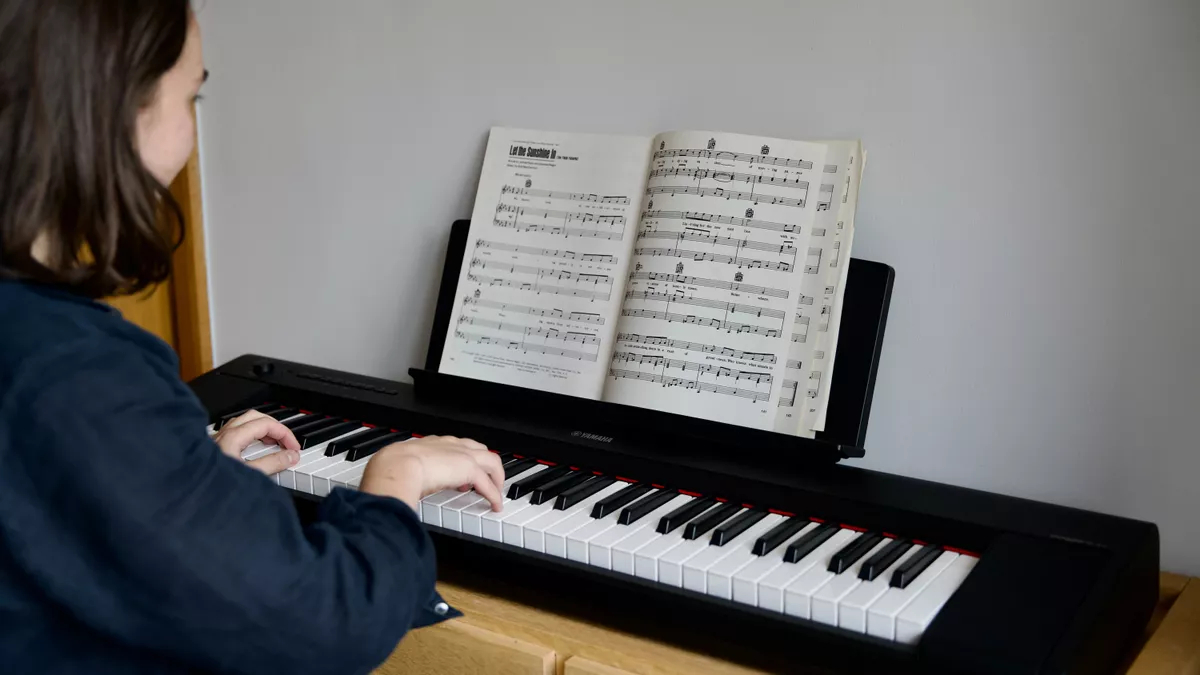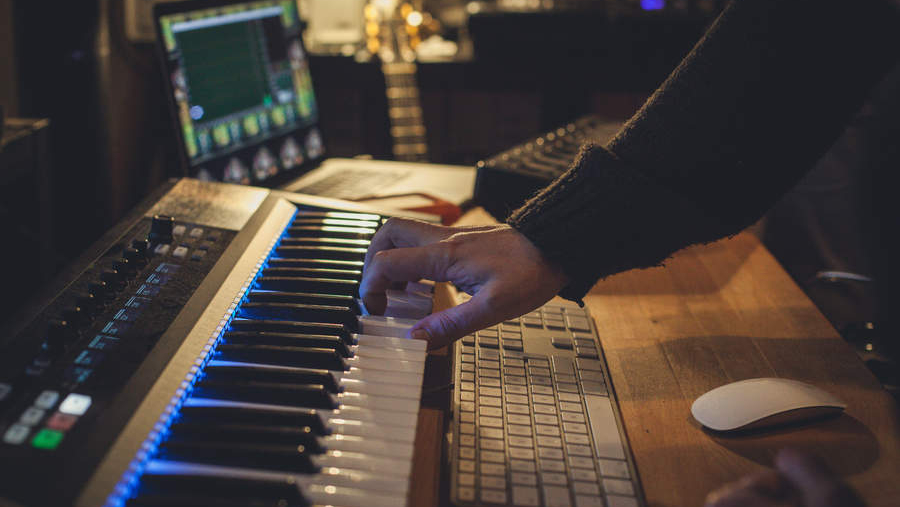
At MusicRadar, we're all about getting our hands on the latest and greatest music-making gear. From top-notch electric guitars and digital pianos to electronic drum kits and keyboards, we put each product through its paces with our expert team. Our testing process is so thorough that we can confidently recommend only the best products in our buyer’s guides. So, when you take our advice, you can be sure you're getting top-quality gear.
Today, we're diving into the exciting world of beginner keyboards. We understand that choosing your or your child's first keyboard can be overwhelming with so many options available. To make things easier, here are the criteria we use to evaluate all keyboards. This should give you a good idea of what to consider when selecting the perfect instrument for your needs.
So without further ado, here’s how we test beginner keyboards.
How we source and select products

When it comes to sourcing products for review, we are often in direct contact with the manufacturers and distributors, who typically send us the product. However, it's important to stress that our review process is entirely independent and free from commercial considerations. We never take money to publish reviews or for ratings, so you can be assured that the opinions in the reviews are 100% genuine. Our dedication to providing you with genuine opinions is unwavering.
In cases where we can't get a product through a manufacturer or distributor, we will purchase the unit with our own money.
When it comes to choosing which products to test, we take a comprehensive approach. We draw from our own hands-on experience, carefully consider user reviews, and gather testimonials. Additionally, we engage in extensive discussions with our editorial colleagues to ensure we reach a consensus on the top products in any given category. While it's not possible for us to test every single product on the market, we make every effort to get our hands on as many as possible to represent the whole market. This allows us to provide thorough and insightful recommendations to our audience.
How we test

When we receive a keyboard for review, we start by asking ourselves the following questions:
- How easy is the keyboard to play for complete beginner?
- Are the sounds inspiring and varied?
- Is the unit easy to navigate without reaching for the manual?
- Is the keyboard well-made and robust?
- And does the keyboard offer the user good value for money?
Below you'll find a breakdown of the tests we carry out to answer each of these questions.
Playability
Okay, let’s start with one of the most important factors when choosing a beginner keyboard, playability. Beginners need keys that are easy to press, considering they may not have the finger strength and dexterity of experienced players. That's why it's essential to look at the keyboard’s action through the lens of someone new to the instrument.
Another crucial feature is velocity sensitivity. This means the keyboard responds to how hard you hit the keys, just like an acoustic piano. We want to make sure that the keyboard can produce a wide range of dynamics right from the start, so we'll be testing the full dynamic range of the keys.
The physical feel of the keys is also important. We want keys that feel sturdy and well-made, providing a nice tactile experience without being too slippery. These factors are key in ensuring a great playing experience for beginners.
Sounds
Next is the sound of the keyboard. Beginner keyboards typically come loaded with hundreds of voices, but what’s important to us is the quality of the tones, not the quantity. When trying to determine if a beginner keyboard has a great sound or not, we mainly focus on a few core voices – grand piano, electric piano, strings, organ, and modern synth. If a keyboard can nail those sounds, then in our opinion, it will be able to perform the majority of songs most beginners will want to play.
Of course, a keyboard must have decent speakers in order to play back those sounds – so we’ll go to great lengths to test the depth of the built-in speaker system. Testing everything from the lowest possible note to the highest, we’ll pay careful attention to how the speakers react, looking out for any audible signs of distortion.
Lastly, we’ll test the keyboard's voices via a good-quality set of headphones, as that’s how the majority of players will be practicing. For us, we’re looking for a clear and punchy sound that is clean, crisp and detailed with zero distortion in the low frequencies – even at louder volumes.
Usability
Keyboards tend to be choc-full of features and extras. From built-in rhythms to split tones, effects and even recording functions, it’s vital that these features are easily accessible and a breeze to navigate for even the youngest players.
So, with that in mind, we’ll evaluate the keyboard's user interface to see how simple it is to use. In our view, you shouldn't need to read the manual to change sounds, record your practice session or select a drum pattern to play along to. A good beginner keyboard should be intuitive to use straight out of the box.
Build quality
Next, we look at the keyboard's overall build quality. It's crucial for the instrument to exude a sense of robustness and solid construction. While it's understandable that keyboards in this price range may be crafted from relatively inexpensive plastic, it's imperative that they don't feel fragile or poorly constructed.
Considering that these keyboards are often played by very young children, they must be able to withstand the enthusiastic playing and handling that comes with youthful exuberance. After all, durability is key when it comes to ensuring that these instruments last throughout the beginner phase of their playing before they inevitably upgrade.
Value for money
When evaluating a keyboard, the last part of the equation is value for money. It's not just about the features and performance but also about whether it's worth the price. We'll carefully combine our thoughts on all the above sections - from design and functionality to performance and sound - and weigh them against the keyboard's price to determine if we think it's worth the investment.
After all, finding the perfect balance between quality and affordability is key when it comes to choosing the right keyboard for our needs.
Meet our experts

With over 17 years of experience, MusicRadar is the world's leading music-making website. MusicRadar is run by musicians for musicians, providing expertly written gear round-ups and high-quality, authoritative reviews by a wide team of highly experienced industry professionals.
Hands-on demos
As well as delivering high quality written reviews and features, we also produce a wealth of video content on YouTube. MusicRadarTV is where you'll find all of our access-all-areas interviews, hot gear demos and exclusive video lessons.







